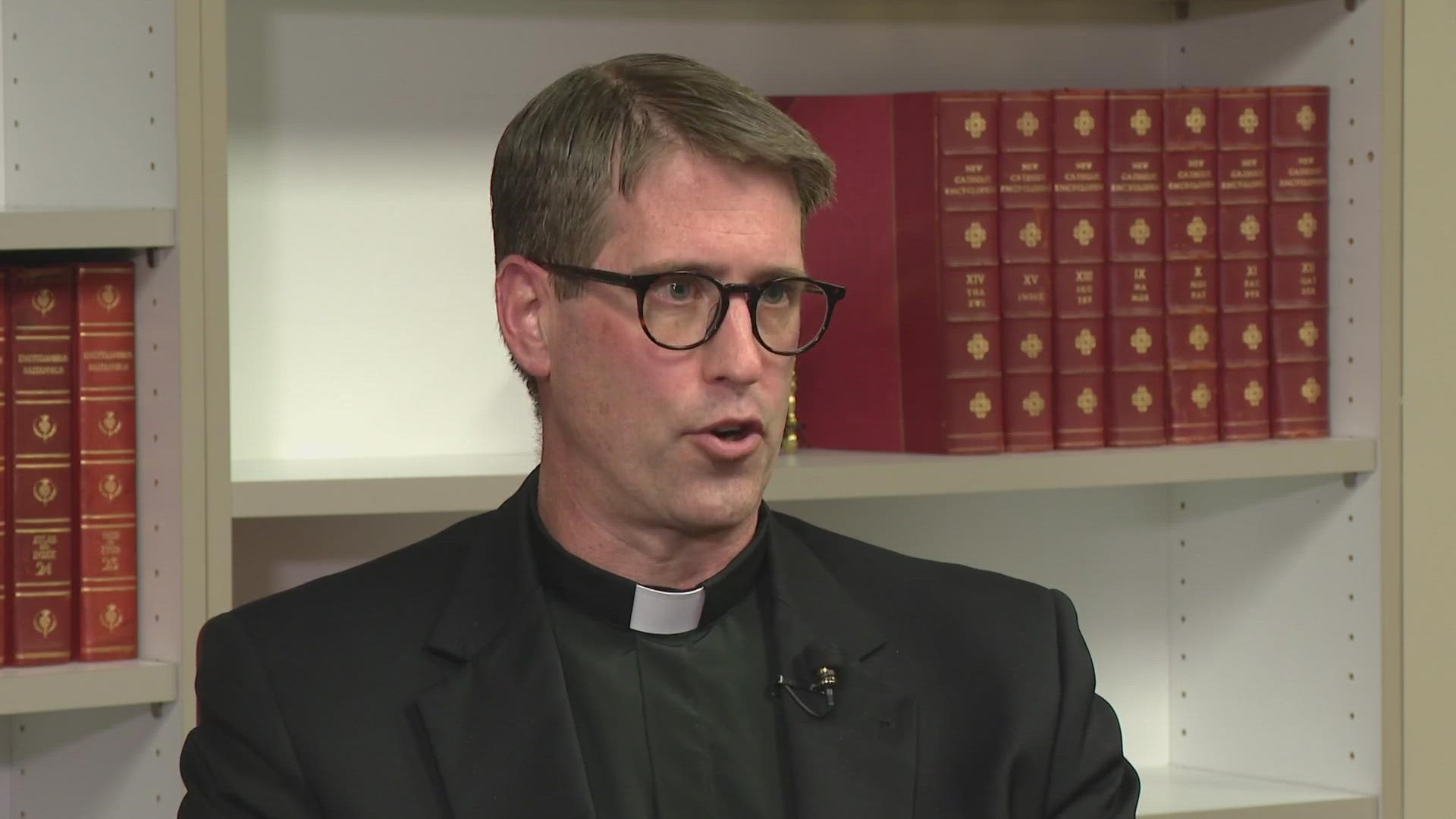ST. LOUIS — We're taking a deep dive into the latest draft of 'All Things New' and what this will mean for Catholic churches across the Archdiocese of St. Louis.
The new plan breaks down 178 parishes into 88 pastorates.
Pastorates are one church or, in many cases, several churches run by one pastor.
5 On Your Side’s Laura Barczewski sat down one-on-one with the man leading the charge, Fr. Chris Martin, to answer some of the biggest questions.
LB: There are a lot of questions about how it's going to be decided, what pastorate takes on what form. Could you talk about how you decide for each individual area what that's going to look like?
FCM: Sure. So the first question that we want to make sure we answer correctly is, are these the right communities to have come together? Then if we've answered that question to the best of our ability, we can actually start a case-by-case examination of saying, what does this really need to kind of look like? And so in some circumstances, as the models reveal, it might be that some parishes largely remain kind of as they are, but might have to adapt some of their ministries and mass schedules because of priest availability and collaboration in the greater community. In some other areas, it might be that you have two parishes that remain independent, but they have to now share a pastor and a parish team. In other areas, it might be that due to demographics, due to financial stability, those types of things that we might examine should these parishes merge their resources into one reality so they have long-term viability moving forward. But we can't answer those questions until we answer the first one correctly. So really, it will be a question that we answer on a case-by-case basis, examining things like demographic shift, financial viability and other circumstances in the Greater St. Louis area that are also having an impact on our communities.
LB: Are the larger parishes in areas with a lot of growth, going to stay the same with one pastor and the pastoral staff?
FCM: I think certainly when we would look at the Archdiocese of St. Louis, we look out at St. Charles and we all know that in the Greater St. Louis area, lots of people are moving to St. Charles. So there is a lot of stability in certain areas out there and some anticipated growth that we would look at. In other areas, we'd say it's a stable community, but it might not be as large or vibrant as it once was. And so maybe they won't have as many priests moving forward as they have. Whereas in other communities we know that the communities have shrunk to the extent that we'd really do need to kind of bring them together and have them collaborate.
LB: Is a lot of merging or closing churches going to happen where we have a lot of these individual churches kind of close together, maybe downtown?
FCM: I think it's not the only area that we might see some of it happening. And I should make the clarification, too, there's a difference between a parish merging with another parish and an actual church building being closed. And so those are two different conversations, actually. And so to bring two faith communities together is one question. But the church strives to sustain church buildings as long as feasibly possible. There are no immediate recommendations right now to close a church or to sell a property. It really is first bringing communities together.
LB: In the end of all this, is there still a possibility we may have to close some church buildings?
FCM: At the end of it. Sure. The church is a living organism and as things continue to develop over time and people keep moving around and society shifts a little bit, we'll have to continue to adjust to that. The intent of All Things New is to hopefully reinspire the faith across the archdiocese in some way. So I don't want to say that no churches will be closed, because it's a possibility. But we also want evangelization, and social outreach to be the first focus. And I think as we look at parishes coming together, if there is a current campus that is no longer being used in the same way, the first question we would ask ourselves is how can we repurpose this for evangelization or social outreach so that we can maintain a vibrant Catholic presence in this neighborhood?
LB: After May 28th, what exactly will happen? What can parishioners expect to see happening in their congregation?
FCM: So on May 28th, I think that they'll see basically the archbishop's announcement of these are the final pastorates. It's moving forward. The next wave will probably be priest assignments. And so you'll see probably a significant shift of the priests across the archdiocese. And saying, now our first marching order is how do we start bringing these communities together and how do we discern things like masses on Sunday? How do we discern what new ministries? How can we try to begin as we come together as a people again?
Parishioners can give any feedback they have to their pastor and then the pastor will bring that to the archdiocese to help finalize the plan.
People have until next Wednesday, February 15th to get that feedback in.
Watch the full interview here:

